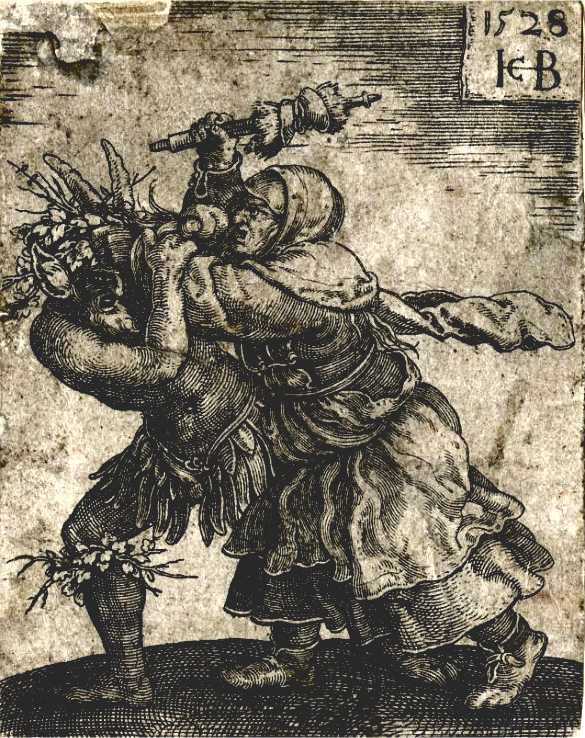Nightwalker: Difference between revisions
No edit summary |
|||
| Line 22: | Line 22: | ||
a '''phantasticum''' and people who can stray | a '''phantasticum''' and people who can stray | ||
'''nightwalkers'''. | '''nightwalkers'''. | ||
'''Known Abilities:''' Second Sight, Straying, and hedge magic. | |||
'''Known Weapons:''' Fennel Blade | |||
'''Known Weaknesses:''' Mortality | |||
'''Organization:''' Nightwalkers seem to be divided between two factions, the ''Light'' (aka: Benandanti) and the ''Dark'' (Malandanti). | |||
'''Last Seen:''' A number of Nightwalkers were seen at the [[Nigrum Unicornis]] (Inn of the Black Unicorn) in Rome, during the first week of March, 1095 (Carnival). | |||
Revision as of 10:56, 21 May 2018
Introduction
In many parts of Europe there are gifted folk magicians with the ability to allow their spirits to roam while their bodies are unconscious or in an altered mental state. These spirits may become material far distant from their mortal bodies, sometimes in animal shapes. These magicians form militias and use their powers to fight fertility battles, protect their communities from evil, and guide the dead. In the cases of the less scrupulous, they also blackmail their neighbors and steal their valuables. The nightwalker traditions of medieval Europe have diverse names, and different powers and duties, in each land.
Those members of the Order of Hermes familiar with this type of hedge magician call the power to travel in spirit ekstasis, which means “straying.” They call the straying spirit a phantasticum and people who can stray nightwalkers.
Known Abilities: Second Sight, Straying, and hedge magic.
Known Weapons: Fennel Blade
Known Weaknesses: Mortality
Organization: Nightwalkers seem to be divided between two factions, the Light (aka: Benandanti) and the Dark (Malandanti).
Last Seen: A number of Nightwalkers were seen at the Nigrum Unicornis (Inn of the Black Unicorn) in Rome, during the first week of March, 1095 (Carnival).
